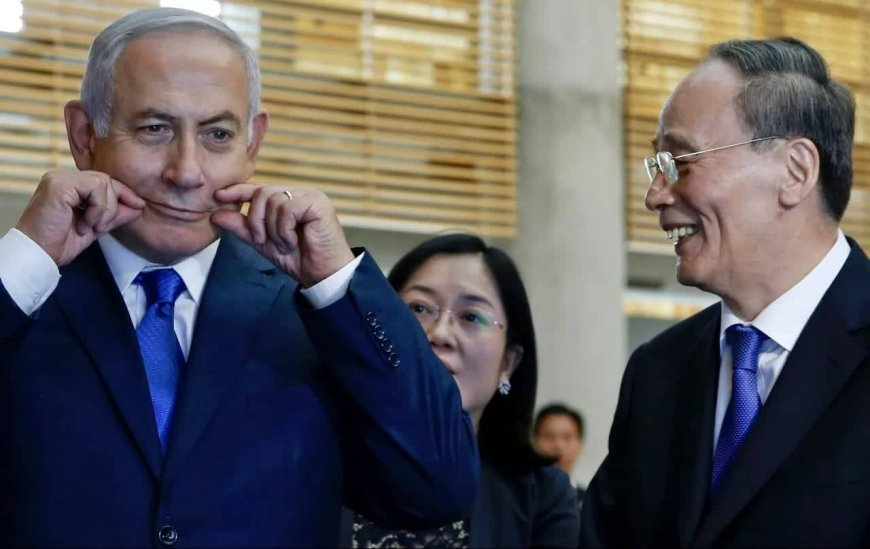The Timing and Significance of Netanyahu's Visit to China: Examining the Zionist Regime's Foreign Policy Goals
The Timing and Significance of Netanyahu's Visit to China: Examining the Zionist Regime's Foreign Policy Goals

Recently, there has been significant controversy surrounding Benjamin Netanyahu's upcoming trip to China. This trip has reignited discussions on the longstanding issue of the Zionist regime's relations with China, which has been a subject of scrutiny and speculation for years.
The timing of Netanyahu's visit is particularly noteworthy, as the Zionist regime has been facing severe challenges in the region and is seeking to improve its untenable situation. One of Israel’s key foreign policy goals is to pursue normalization with Saudi Arabia. Despite various attempts in recent years, these efforts have so far been unsuccessful.
Complicating matters further, the Zionist regime's relationship with the United States has been strained due to the extremist policies of the Netanyahu-led administration. This has led to a deterioration in the ties between Washington and Tel Aviv, as highlighted by reports in the Hebrew and Western media.
Increasing number of American analysts are warning that Netanyahu's trip to China could have disastrous repercussions for the relationship between the United States and Israel. Given the ongoing tensions between China and the United States, Netanyahu's visit could seriously damage the Zionist regime's ties with the US, despite warnings from American officials about expanding relations with Beijing.
The Israel Times, reported that Israeli diplomatic sources have disclosed that the purpose of Netanyahu's trip, for which a date has not been set, is to demonstrate to Washington that Israel has alternative diplomatic options. Netanyahu had previously sought an invitation to the White House, but disagreements over his controversial judicial reforms, extremist policies in the occupied West Bank, and a potential nuclear deal between the US AND Iran led to President Biden distancing himself from the Israeli beleaguered Prime Minister.
Amos Yadlin, the former head of Israel’s Military Intelligence Directorate (Aman), suggested that Netanyahu's intention with this trip might be to emulate Saudi Arabia's strategy of seeking China's mediation in reaching an agreement with Iran. This implies that Netanyahu could be planning to ask China to mediate between the Zionist regime and Saudi Arabia as part of its efforts to normalize relations with Riyadh.
The Hebrew-language Ynet website, noted that several senior Israeli military officials expressed concerns upon knowing of Netanyahu's decision to travel to China. Tamir Hayman, the managing director of the Institute for National Security Studies (INSS) in Israel, believes that from a tactical perspective, the timing of this trip is extremely unfavorable, a significant mistake that could have severe ramifications for the Zionist regime, as the United States provides substantial military aid to Israel and is considered Israel’s most crucial ally. The US also supports Israel with its veto power in the United Nations Security Council.
In contrast, the Zionist regime cannot expect to have the same level of advantage with China as it does with the United States. China is a major global power in the East and is considered a rival to the United States. It is also an ally of both Iran and Russia. Consequently, the Zionist regime cannot anticipate the same level of military and security cooperation with China as it enjoys with the United States.
The United States is deeply concerned about China's access to its military technologies, and any deepening of the relationship between Israel and China only exacerbates these concerns.













































